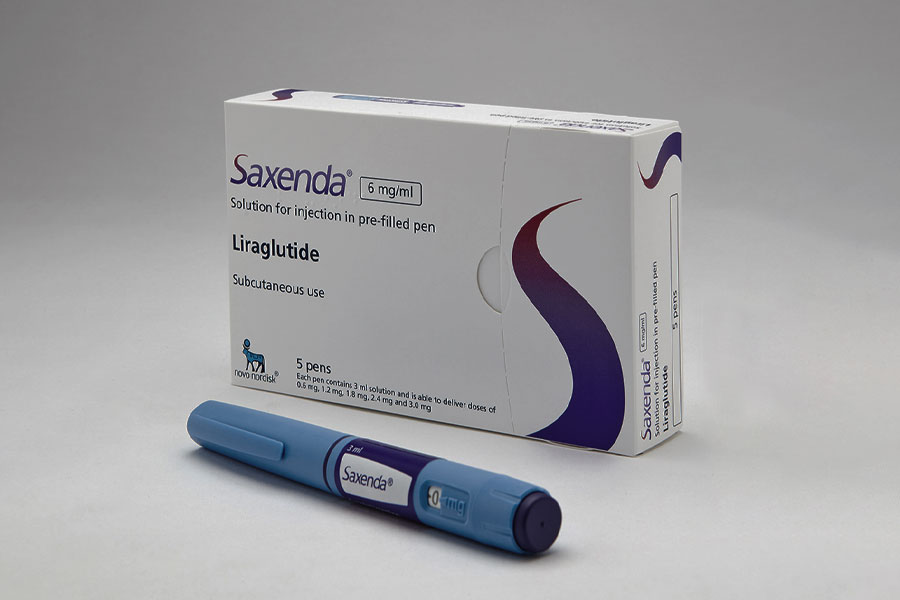
What’s in a word? Large sums of money, it turns out, when that word is “disease”.
The Novo Nordisk pharmaceutical company has invested a great deal of marketing nous in creating a new narrative around obesity. Old words have been relaunched with new meaning. In the drug company’s world, people aren’t “obese”; they are “living with obesity”. People don’t have a “condition” that might be borne of poor diet, eating too much and/or lack of exercise; they have a “disease”.
This shift in language has generated a culture war within the medical community that’s being waged by two opposing groups:
- The “obesity is not a disease” forces: The doctors who see the label of “disease” as emblematic of a move to cast the individual as being helpless, thus delivering power into the hands of those with a medical solution.
- The “obesity is a disease” forces: On the other side are those, frequently supported one way or another by Novo Nordisk, who push for the “disease” category partly to grab more government attention, and perhaps to get anti-obesity medication listed on the Pharmaceutical Benefits Scheme, the Holy Grail for pharmaceutical businesses.
In the crossfire is an ever-growing group of overweight and obese Australians. 67% of Australia’s population is classified as obese or overweight according to the latest Australian Bureau of Statistics figures. One-quarter of Australian children are overweight (17%) or obese (8%). Obesity is more common among those living in poorer and less educated parts of Australia.

Obese people are also likely to have other serious medical conditions, such as coronary heart disease, hypertension and/or type II diabetes. Obesity is also linked to several types of cancer, including liver, kidney and pancreatic cancer. Other co-travellers are depression and infertility.
In the face of this reality, Novo Nordisk has developed a marketing strategy that aligns its interests with those of doctors, governments and patients.
It’s a win-win narrative, wrapped in the language of social responsibility in which the company’s drug is a logical and, for some, necessary solution. It’s a pitch made in the certain knowledge that patients rarely, if ever, take real responsibility for their health.
Yet the company’s story is meeting pockets of stubborn resistance.
“We’ve got a sedentary lifestyle, an obesogenic environment, too much fast food, bigger portion sizes, and we’ve got governments that believe in individual responsibility rather than treating it as a public health crisis,” says Dr Ken Harvey, associate professor of public health at Monash University, and a lifelong campaigner for health consumers.
“Clearly it’s in the industry’s interest to say, ‘yes it’s a disease, here give us lots of money, and here is a drug that will fix it’,” Harvey explains.
Queensland GP Dr Paul Neeskens, former chair of the Wide Bay Medicare network of doctors, is particularly caustic about the new forms of language demanded of him in the surgery. He’s reacted sharply to a Health Department edict that GPs refrain from using the O word and to instead refer to patients as being “well above a healthy weight”. Neeskens is equally dismissive of the D word.
“Obesity is not a disease,” he argues. “It’s ridiculous. It’s turning people into victims who need to be somehow saved — it’s all about profits for pharmaceutical companies. They want to turn patients into victims and say we’ve got a magic wand that will fix you.”
“They say to me, ‘doc if I’m fat I don’t mind you calling me fat’,” he says, in answer to the charge his language might stigmatise people.
The Australian Medical Association (AMA) has refrained from falling into line with the Novo Nordisk narrative. Its official policy avoids referring to obesity as a disease. Nor does it see any real benefit in anti-obesity medication.
Novo Nordisk’s views, though, have gained traction with doctors who specialise in diabetes and obesity and who are influential in the medical debate. Inq’s investigations show that a number of these specialists have been funded by Novo Nordisk for providing professional advice, research, or for education.

The not-for-profit advocacy bodies Obesity Australia, and the Australian and New Zealand Obesity Society (ANZOS), back the idea that obesity is a disease. Both also receive funding from Novo Nordisk.
In the case of ANZOS, the decision came after internal disagreement over whether or not calling obesity a disease — or a “chronic relapsing disease process”, as it settled on — would put medical treatment ahead of prevention. It’s understood the doctors won out over the concerns of non-medical members.
Bond University academic, Dr Ray Moynihan, who’s been a close observer of Big Pharma’s influence on Australian health policy, sees a “typical pattern” playing out.
“It’s common for specialist groups to back expanding the definition of a disease because they have a lot more to do with pharmaceutical companies than GPs do.”
When asked, a Department of Health spokesperson told Inq the government’s preferred approach to tackling obesity was to “actively educate, support and encourage Australian families to adopt and maintain a healthy lifestyle rather than classify obesity as a disease.
“The World Health Organization considers being overweight and obesity to be major risk factors for a number of chronic diseases, but does not consider them to be chronic diseases,” the Department says.
“These risk factors are considered modifiable and the same in men and women. They include such things as unhealthy diets and physical inactivity.”
According to one source familiar with the process, one concern is the so-called “floodgate” argument: that treating obesity as a disease has the practical implication that patients have no “engagement” with their condition and cede power to the doctor. In other words: give me a drug to fix it.
For mass sales Novo Nordisk would need its drug (Saxenda) to get taxpayer subsidy via the Pharmaceutical Benefits Scheme, a step it hasn’t taken yet — but which is a key aim for the company. At $400 per month, the treatment is too expensive for most patients even if doctors want to prescribe it. Cholesterol drugs by comparison cost around $35 per month. Blood pressure medication, also subsidised by the PBS, come in at about $15 a month.
The drug’s efficacy, for the present, continues to be a problem. An independent UK study in 2017 cast doubt on Saxenda’s effectiveness as a medium term medication, given that patients regained weight within 12 months of stopping the drug. The drug was also found to have side effects such as nausea and vomiting.
For now, with no gold standard pharmacological treatment, the debate is somewhat moot. In the interim however, it’s important to not lose sight of the main issue — that disease or not obesity is a growing problem, and that when it comes to solving it, prevention and treatment are going to need to find their meeting point.
Tomorrow: ‘We are making a bet on obesity.’











A wrist-mounted device that displayed the current level of blood ketones would put all control in the hands of the dieters. They could then use “Dr Rudi’s radical new Eat Less Diet”.
Nice someone else remembers Dr Rudi. I still quote him.
A problem with treating obesity as a disease is that its an entirely natural response to excessive calorie consumption and/or a change in the formulation of food. Healthy people require no onset of pathology to become overweight it they eat a modern diet.
As a consequence, the history of medical treatments for obesity is not good because rather than requiring the interruption of a pathological process, it requires the interruption or modification of some essential normal ones. Basic thermodynamics constrains what a drug can actually do if you take excess matter into your body. You can expel it undigested (Orlistat) but that’s is whats called ‘oily leakage’ and bloating, you can burn it with an increased metabolic rate (Sibutramine, amphetamines, Phen Phen) but that tends to increase blood pressure, heart rate and overall mortality as well as possibly making one a bit cray cray (amphetamines), you can turn down appreciation of food (Rimonibant) but unfortunately that means turning down appreciation of just about everything and can make one suicidal or depressed. So now we have nausea, which is a common side effect of NovoNordisks new drug and probably amounts to the main effect give or take.
This is a comprehensive failure of preventative health policy and conception. People are not overweight because there is something wrong with them – there is absolutely no biological change which has happened at a population level over the 20-30 years obesity has become epidemic – its because the food environment is toxic to healthy people. Its like air pollution. Only a systemic change to the formulation, supply and promotion of food will change this very much and the fact that this is inconceivable within the current political and economic system is actually the disease.
If obesity is a disease, then “over-eating/sub-optimal activity” is a disease.
Well done INQers. Your best instalment yet: hard-hitting, a range of the best succinct opinions from both sides quoted.
In my view people are eating too much AND are too inactive for their needs (and individuals’ needs vary).
Being too inactive is more easily understood: I’m inactive typing this and you’re inactive reading it. It’s the default. But over-eating requires activity: the individual has to make the decision to buy more food than they need, most will go to the supermarket and select the food they are going to eat, place too much of it it in the trolley, wheel that food to the checkout, watch the cashier scan the food, pay for it and cart it out the door, into the car and home. They will pack most of it on the shelf or in the fridge and then make a number of decisions daily to over-eat from their cache. Then do it again. And again. And it makes them feel guilty and miserable.
The questions are: why do they this? and how do we help those who want to break their cycles?
They do this because there is a complex structure of advertising messages, convenience, and formulation of food that combines high sugar and fat content to be just about as addictive as crack which undermines what would normally be a fairly simple satiety system. Proponents of individual responsibility tend to assert that what you eat is a rational choice, as if it is obvious this has always been so. Actually people never used to have to think overly much about staying thin – the culturally normative diet, what was sold, and what was expected just led to that outcome.
Up to a point. But we are all equally EXPOSED to the influencers you describe, but we are not all equally DISOPOSED to succumb to them.
That differential disposition remains the big problem to be explored and resolved.
When you reach a point when 2/3 of adults are ‘disposed’ to be affected by something, then its really ‘exposure’ which is the problem. There are probably some people who will never put on weight, just like there are people who will never get cancer from cigarettes, but that’s not really the point.
An obesity drug to counter the effect of overeating and/or crap food is analogous to an antidepressant used to treat the effects of living in an insane society.
Treating symptoms is far more profitable than obviating a cause which would inconvenience so many worthy people, advertising agencies, junk food pushers & the general commercial system.
It seems living is a medical problem to-day.
We have the named psychiatric diseases – anxiety [because my girlfriend left me] , Grief [ because someone I cared about died and I am very sad ], Defiant child syndrome [bugger of a kid because the parents know nothing about parenting], and, of course autism not actually a disease but a spectrum [like light] which attracts millions of dollars of NDIS [Notional Disabilities Insurance Scam] etc.
I read Queensland Health is removing soft drinks and introducing bottled water [ever heard of plumbing and more taps, and supplying a glass].
What if I told you that all of the health problems associated with fatness are also associated with social stigma, like the stigma that fat people experience. What if I told you that fatness is also a protective factor for some cancers, increasing the likelihood of survival?
Are you sure, really really sure, that fatness is actually the problem everyone says it is? Have you considered the possibility that it might be other things that happen to frequently co-occur with fatness? That we might be able to address public health issues without making fat people suffer?
It is getting hard to actually define the effect of obesity in a society in which so many people are obese, because there is a far smaller number of people to use as comparators. That being so, obesity is associated with an increased risk of cancer pretty much comprehensively. There is the ‘paradox’ that increased weight might be predictive of better outcomes once you actually get cancer, but since advanced cancer causes weight loss and also kills you that’s a hard one to tease out in terms of contributing factors. Social stigma causes many things, but the rates of diseases associated with obesity have risen pretty much in line with rates of obesity. Social stigma associated with obesity may have risen at the same time, but social stigma as such has existed for lots of reasons (sexuality, race, class etc) for ages and didn’t seem to raise the rates of these diseases in thin stigmatized individuals to the same amount.
From the BBC website yesterday:
“Cancer Research UK says bowel, kidney, ovarian and liver cancers are more likely to have been caused by being overweight than by smoking tobacco.”
Another point: The term “overweight” and references to “excess weight” and like terms are misleading. Above normal bodyweight through muscle mass has an effect different from that of above normal bodyweight through fat; they have different physiological effects.
The term “obese” implies excess body fat. The term “overweight” is unhelpful, especially if it leads people who are too fat to avoid taking remedial action with the popular excuses that they have “a large frame” or are “big boned”.
For the sale of clarity and improving the health of the population and individuals, we should focus on “obesity” and body fat and discard the misleading terms “overweight”, “weight loss”, “weight watching” etc.
Yes – fatness really is a major problem and no, not just because of the social stigma the obese people experience.
An NHS psychiatrist writing in the UK Daily Mail yesterday said: “… let’s stop talking about people battling with their weight, as though it involved a malignant force beyond their control and start talking about people battling with their lack of self-control.”